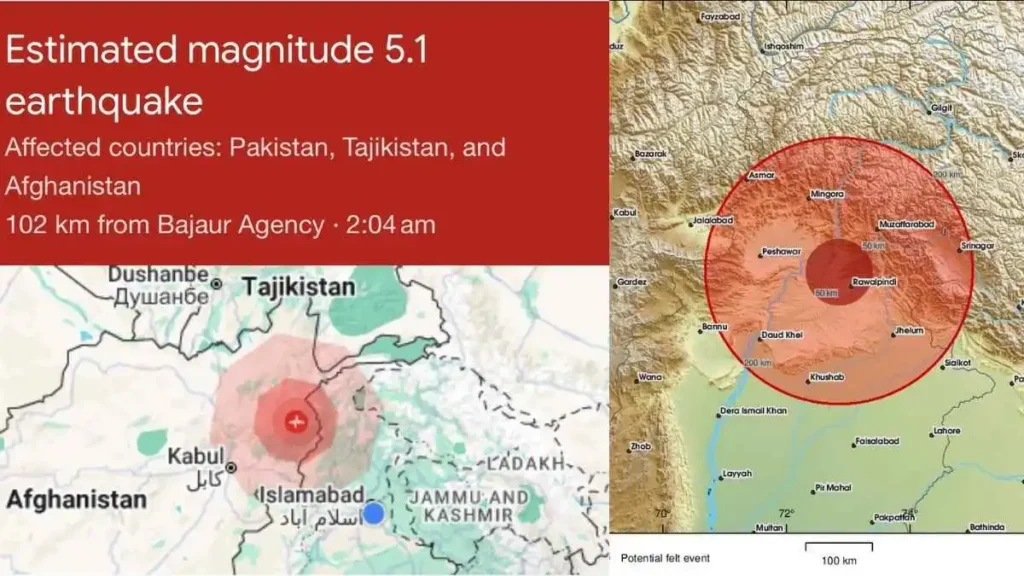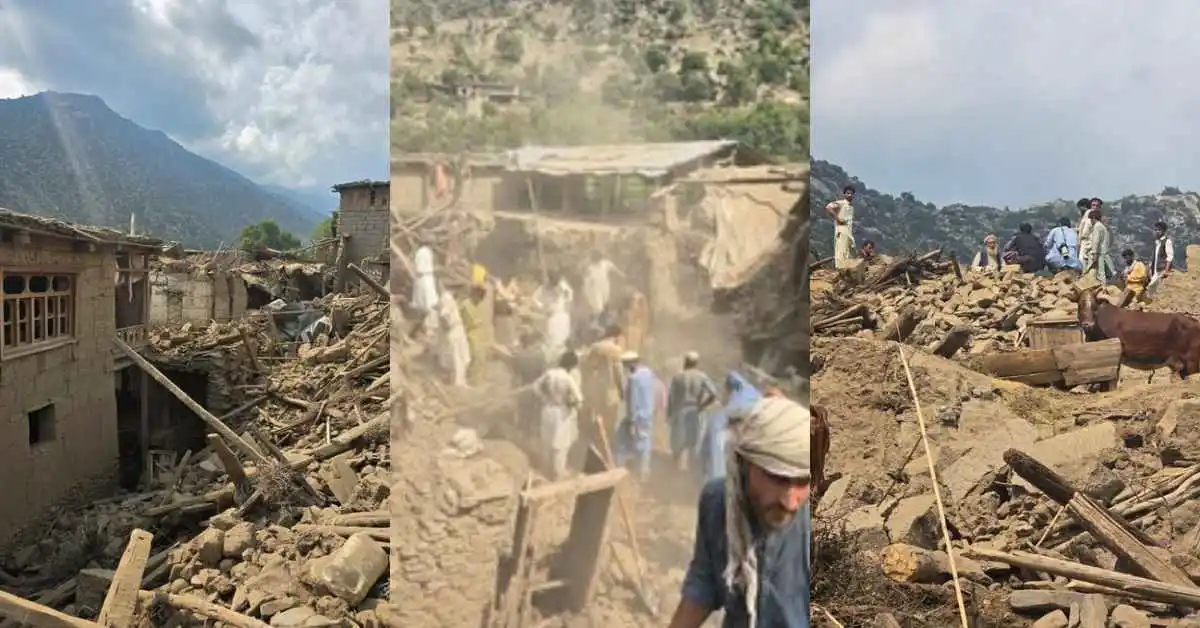Kunar, Afghanistan – 1 September 2025 (12:07 AM local time):
A devastating 5.5-magnitude earthquake hit Afghanistan’s Kunar province just after midnight, leaving a trail of destruction. The tremors spread across the border into Peshawar, Bajaur, and Gilgit (Pakistan), where people rushed out of their homes in fear.
Authorities in Afghanistan have confirmed that over 1411 people lost their lives in the quake, while hundreds more were injured. Most of the deaths occurred in remote villages where mud-brick houses collapsed instantly under the shaking. Rescue teams are struggling to reach mountainous areas due to blocked roads and damaged infrastructure.
Hospitals in Kunar and neighboring provinces are overwhelmed with the injured. Emergency shelters are being set up as families spend nights in the open, fearing aftershocks.
So far, no major damage or loss of life has been reported, but people are in a state of worry. Many areas experienced brief electricity outages, and mobile networks also slowed down as people attempted to contact their families. Experts suggest that this region is particularly sensitive to earthquakes due to its proximity to fault lines.

Every time tremors occur, the fear of a larger disaster comes to mind, as Pakistan has faced major earthquakes in the past. Authorities have advised people to remain calm but also stay alert for any potential aftershocks.
At this moment, rescue and monitoring teams are collecting updates from different regions. The earthquake served as a poignant reminder of the vulnerability of our cities and the importance of being prepared for natural disasters.
ALSO READ
Deadly Floods in Pakistan: A Tragedy Repeated Every Year.
A 5.5-magnitude earthquake hit northern Pakistan early on Saturday morning, causing significant ground shaking. Still, thankfully, there were no reports of injuries or damage to buildings, as stated by the National Seismic Monitoring Centre (NSMC). The earthquake occurred at 2:03 AM Pakistan Standard Time, with its epicentre located in the Hindu Kush area of Afghanistan at a depth of 114 kilometres.
The shaking was experienced over a large area, which included the federal capital, Islamabad, as well as many districts in Khyber Pakhtunkhwa (KP), Punjab, Azad Jammu and Kashmir (AJK), and sections of Gilgit-Baltistan, along with nearby Afghanistan and Tajikistan.
People living in the cities that were hit said they woke up to some light to moderate shaking, and a lot of them left their buildings because they were scared.
Places that felt the earthquake include Peshawar, Swat, Malakand, Dir, Mardan, Haripur, Abbottabad, Rawalpindi, Lahore, Mirpur, and the Ghizer district in Gilgit-Baltistan.
- A 5.5 magnitude earthquake struck at 2:03 AM Saturday
- The epicentre is located in the Hindu Kush region, Afghanistan
- Tremors felt in Islamabad, KP, Punjab, AJK, and Gilgit-Baltistan
- No reports of deaths or property damage
- PDMA and NSMC on alert as seismic activity continues in the region
The Pakistan Meteorological Department (PMD) stated that the earthquake started in the Hindu Kush mountain range, which is known for having strong and deep earthquakes.
The PDMA has established a 24/7 helpline (1700) for individuals with questions or in need of assistance during emergencies.
Officials are asking everyone to stay calm but also be aware, especially since there might be aftershocks in the hours after the main earthquake.
Homeowners should inspect their houses for small cracks or any damage and notify the local disaster management offices if they notice anything unusual.
Although there is no immediate danger, this event underscores the importance of being prepared for earthquakes, particularly in cities where buildings may not be sufficiently sturdy.
Safety agencies have emphasized the importance of implementing public awareness campaigns, conducting earthquake drills, and ensuring that building codes are followed to minimize damage in future earthquakes.
Seismic activity is likely to continue in northern Pakistan due to ongoing tectonic shifts, so officials are urging everyone to remain calm and alert.
My name is Farhad Dawar and I am graduate of the Institute of Media and Communication Studies Bahaddin Zakariya University Multan Pakistan. I’m passionate about journalism and media, and I believe in journalism of courage, uncovering the truth, and shaping the future.














